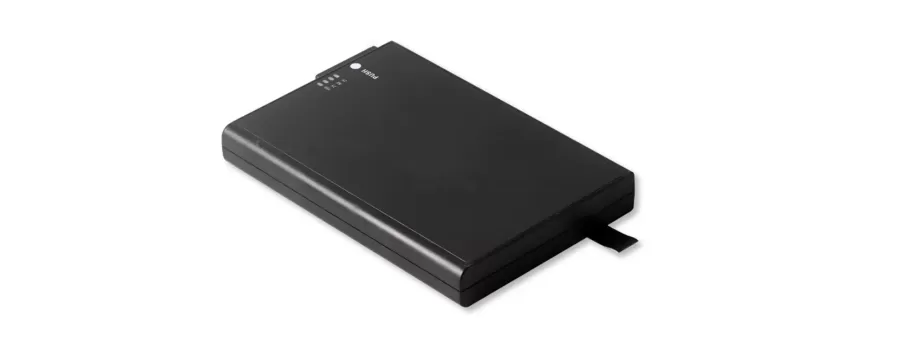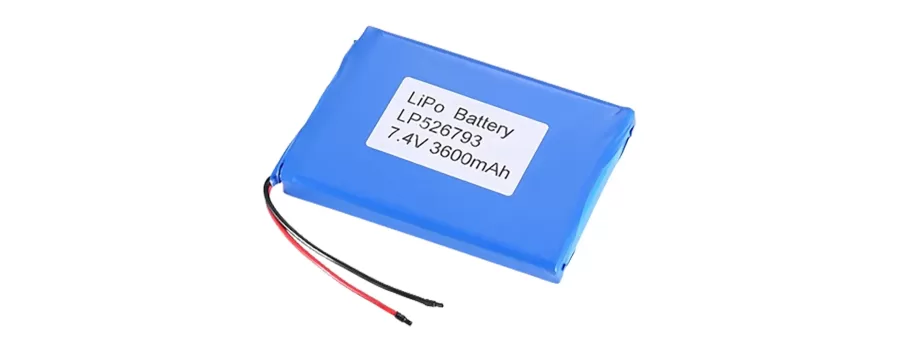Medical lithium batteries play an important role in modern health care. The power the medical equipment to improve the patient’s health and even survive life. The battery safety or developing long lasting and reliable medical grade rechargeable battery seems virtually important. We’ll bring you to explore more about medical batteries.
What are the Medical Grade Rechargeable Battery?
Medical lithium batteries are used for medical equipment as power sources, like wireless mobile medical equipment, portable intelligent electrotherapeutics instruments and pacemakers.
- High Reliability – Medical batteries must have highly stable output voltage and long lifespan to ensure that medical equipment does not power interruption or fail at critical moments.
- High Energy Density – Medical batteries need to have high energy density and require the battery size to be as small as possible.
- Workable in Special Environments – Medical batteries may need to work in special environments, such as high temperatures, low temperatures, high humidity, or high altitudes. Battery performance and reliability need to be guaranteed in these extreme environments to ensure the normal operation of medical equipment.
- Size and Shape Adaptability – Medical batteries often need to match the design requirements of medical devices, and size and shape adaptability are very important. The battery must be shaped, sized, and connected in a manner that is compatible with the device’s power interface and accommodates the device’s form and structural constraints.
What Kinds of Qualifications Must Medical Devices Battery Manufacturers Be?
Medical grade rechargeable battery has strict quality standards for the battery manufacturer. Battery safety is the top thing. Specific qualifications are requested.
- Quality Management System – The battery manufacturer should be verified with ISO 9001:2018 as the international standard that specifies requirements for a quality management system (QMS). The battery manufacturer should the quality control standard from the materials, semi-finish assembly, and finished product testing to ensure the battery safety.
- Supply Chain Management – The battery manufacturer should have a strong supply chain ability. The stable quality and lead time to ensure the quality. Each part of the materials should be environmentally safe.
- Battery Design Experience – Because the medical batteries have a small dimension request. The engineering team should own the ability from the cells, BMS, and battery case design over 5 years.
Which Batteries are Used in Medical Devices?
Different medical devices have different battery types.
- Lipo Batteries – The lipo batteries have high density and are widely used for Pacemakers, and hearing implants.
- NiMH Batteries – The NiMH Batteries are used for Handheld medical instruments, portable medical equipment, and bedside monitors.
- LiFePO4 Batteries – The LiFePO4 Batteries are used for electric wheelchairs. This type of battery has stable performance and safety even has over 2000 cycles.
- Ternary Batteries – Ternary batteries are made by 18650 and 21700 ternary rechargeable cells.
Manufacturers and medical professionals must choose the right battery type for each medical device based on its power requirements, size limitations, and safety considerations.
Case Study: Medical Battery Examples
We will share some medical device battery examples for your reference.
25.6V 22Ah LiFePO4 Battery for Electric Wheelchair
Combination: 8S7P
Cell:3.2V 26650 3.2Ah LiFePO4 cell
Dimension:300*180*150 mm (Max), other dimensions are optional.
Charge Voltage:29.2V
Charge Current:≤5A
Discharge Current:15A
Peak Discharge Current:60A
Protection: Short circuit protection, overcharge protection, over-discharge protection, over-current protection, temperature protection, equalization.
Communication:485

10.8V 5200mAh Medical Device Li-ion Battery
Combination: 3S3P
Cell:3.6V 18650 2600mAh
Dimension:123.4*74.3*23.2mm (Max), other dimensions are optional.
Charge Voltage:12.6V
Charge Current:≤2.5A
Discharge Current:3A
Peak Discharge Current:5A
Protection: Short circuit protection, overcharge protection, over-discharge protection, over-current protection, temperature protection, equalization.
Communication: SMBUS

11.1V 7000mAh Li-ion Battery Pack for Monitor
Combination: 3S2P
Cell:Samsung 3.6V 18650 3500mAh
Dimension:68×38×58mm(Max)
Charge Voltage:12.6V
Charge Current:≤3A
Discharge Current:3A
Peak Discharge Current:5A
Protection: Short circuit protection, overcharge protection, over-discharge protection, over-current protection, temperature protection, equalization.

7.4V 3600mAh High-Temperature Lipo Batteries for Medical Device
Combination: 3S1P
Cell:3.7V 3600mAh lipo cell
Dimension:95*89*85mm(Max)
Charge Voltage:12.6V
Charge Current:≤2A
Discharge Current:2A
Peak Discharge Current:3A
Protection: Short circuit protection, overcharge protection, over-discharge protection, over-current protection, temperature protection, equalization.
Working Temperature:-20~80℃

Conclusion
Medical lithium batteries are high quality and long-lasting. Every medical device manufacturer has the obligation to choose the safety battery to make their devices survive life. The battery is the heart of the medical equipment. For more details about medical device battery standards, please contact CMB to get comprehensive guidance on custom battery pack solutions.


